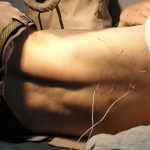
Acupuncture is a form of Alternative Medicine that is said to help with various health conditions. For example, it is possible that acupuncture can be helpful for better sleep. A study published in the Journal of Alternative and Complementary Medicine found that people who received acupuncture had better sleep quality than those who did not. The study participants were divided into two groups: the first group received acupuncture, while the second group received sham acupuncture.
How does acupuncture for sleep work?
Acupuncture is an ancient Chinese practice that involves the use of tiny needles to stimulate specific points on the body. While there is still some debate over how acupuncture works, research suggests that it may help to improve sleep quality by balancing the body’s energy flow or “qi.” In particular, acupuncture may help to promote relaxation and reduce stress, which can interfere with sleep.
How to Find Acupuncturist for Sleep?
There are many ways to find an acupuncturist. One way is to look in the phone book under “acupuncture.” Another way is to go on the internet and do a search for “acupuncture.” There are also acupuncture directories that list acupuncturists by state.
When looking for an acupuncturist, it is important to find one who is qualified and experienced in treating sleep disorders. The National Certification Commission for Acupuncture and Oriental Medicine (NCCAOM) offers certification in acupuncture for sleep. NCCAOM-certified acupuncturists have had special training in the diagnosis and treatment of sleep disorders using acupuncture.
Risks:
There is little research on the potential risks of acupuncture for sleep, but there are some possible risks to consider. One study found that people who received acupuncture for insomnia had a higher risk of developing pneumonia, possibly because they were sleeping more soundly and were not as alert to changes in their environment. Additionally, any time you undergo a new treatment, there is always a chance for adverse effects. With acupuncture, these could include pain or discomfort at the site of needle insertion, nausea, dizziness, or lightheadedness. Acupuncture can increase the risk of bleeding and other side effects when taken with certain medications. It is important to talk to your doctor before starting acupuncture if you are taking any medication.
In conclusion, acupuncture may be a viable treatment option for sleep disorders. More research is needed to determine its efficacy, but the preliminary evidence is promising. If you are struggling with insomnia or another sleep disorder, speak to your doctor about whether acupuncture could be right for you.


